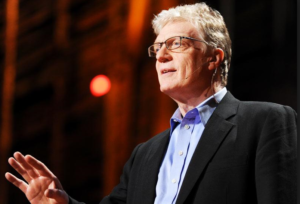Fixing our education system
Education systems need to innovate and concepts of learning need to be turned on their head if they are to equip children for a rapidly transforming world, according to one of the world’s leading educationalists.
Speaking at the recent EduTECH Conference in Sydney, author and education reformer Sir Ken Robinson said rigid curriculums, an emphasis on competition and a failure to value natural talents were undermining the basic principles of learning and education.
Author of the seminal 2015 book ‘Creative Schools: The Grassroots Revolution That’s Transforming Education’, Sir Ken said more value needed to be placed on things like the arts, unstructured play and social skills if education systems were to keep pace with transformational technology and innovation.
“The education our kids are getting is not fit for purpose. There’s a culture of antipathy towards the natural skills and capacity of children – and parents are part of the problem. They want to do the right thing but often they’re getting in the way,” Sir Ken said.
“Kids and the teaching profession are under increased stress and anxiety – but this is totally avoidable and fixable,” he said.
Sir Ken said there were differences between learning, education and school.
“Learning is all about natural curiosity, education is organised intellectual processes and schools are communities of learning – but we seem to have forgotten this,” he said.
“We have come think of schools in a certain way but I think there is an opportunity for innovation and to rethink the way we see schools.
“We organise schools in a linear way; into subjects and age groups – but there isn’t a good reason to do so.
“We have appalling linear and standardised testing and our education systems are hierarchical and based on competition. We have this linear trajectory of junior school, high school and a degree,” Sir Ken said.
He said this cuts off other options of importance and interest for kids in the future.
“Life is not linear and will be increasingly less so into the future. Life is increasingly recursive, accidental, improvisational and organic,” Sir Ken said.
He said children are full of boundless potential and extraordinary capacity. But their human resources were diverse, buried and need developing.
“The trick is to turn natural capital into useful skills. And we can do all kinds of things given the opportunity,” Sir Ken said.
“For instance, children learn to speak because they want to and they can – not because they are formally taught by someone,” he said.
Sir Ken said the new wave of innovation and technology coming, that includes artificial intelligence (AI), would not be the apocalypse that some people were predicting.
“Every time there is a major transformation in technology, it is heralded as the end of civilisation,” he said.
“Certainly, jobs will be swept away but other jobs will be created. And people adjust and adapt and move in other directions,” Sir Ken said.
He said education systems must move past their current “static” structures and evolve to equip children to deal with the incoming new wave of innovation and technology.
“Education is a complex adaptive system with millions of people involved each with different interests but it needs to change dynamically,” Sir Ken said.
He said teachers and others at the grassroots level of education could affect change.
“People in education have agency and we all need to remember what education is for,” Sir Ken said.
“Education should be about enriching students’ understanding of the world around them and the talents within them so they can become fulfilled individuals and active and compassionate citizens,” he said.
“Currently in education we are not addressing this inner world and standardisation is killing the things that kids need.
“One of the things they need is unstructured play. We need to refocus on things that matter like physical play, art, working with other kids and problem solving.
“Education should be balanced and include art, physical exercise and project work; and it should be social.
“Our social lives and cultural lives are unpredictable and technology is another random factor. Our education systems, now more than ever, need to reflect that,” he said.
Sir Ken said education and humans were both complex, interactive systems and he used the analogy of industrial agriculture to describe what has happened in education, especially with the adoption of concepts like the Program for International Student Assessment (PISA).
“Industrial agricultural systems are focused on yield, they are mechanised and mono-cultural,” he said.
“Output is the focus but the system is unnatural so farmers have had to introduce chemicals to maintain yields and the result is erosion and the spread of disease.
“Organic farms, by contrast, are very focused on the soil – and the outputs follow naturally.
“So it is in schools, it is unnatural for us to focus on output and yield. We have degraded the culture of learning and we need to restore that,” he said.












